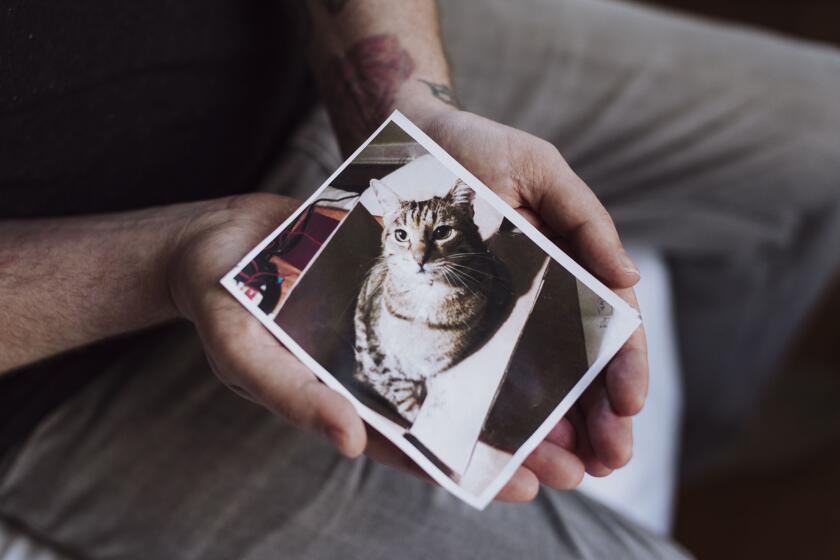City weighs tough pet law
Hoping to lower the number of animals that are euthanized, Huntington Beach is considering whether to make residents spay or neuter their cats and dogs and implant microchips in them so lost pets are reunited with owners.
The City Council voted 4 to 3 Monday to have staff draft an ordinance that would mirror one that Los Angeles County adopted last year to regulate most dogs in unincorporated areas. About 40,000 dogs have had microchips inserted, and Agoura Hills, La Puente, Santa Clarita and Walnut have adopted similar ordinances, L.A. County officials said.
Santa Cruz, San Mateo and Stanislaus counties have mandatory spay/neuter laws, as do counties in Colorado and Washington state, said Michael Markarian of the Humane Society of the United States.
In the decade that Santa Cruz County has run its program, the number of animals needing shelter has dropped from 14,000 a year to about 5,500, and the euthanasia rate has dipped from 30% to 17% for dogs and from 60% to 50% for cats, Markarian said.
Earlier this year, Assemblyman Lloyd Levine (D-Van Nuys) introduced a bill that would have required residents statewide to spay or neuter their dogs and cats, spurring the largest volume of public response of all proposed measures in the legislative session. Under pressure from opponents who said the bill would have infringed on pet owners’ rights, Levine withdrew it.
In Huntington Beach, Councilman Keith Bohr pushed last spring for a city spay/neuter proposal after animal rescuers approached him about opening a no-kill shelter.
A more feasible plan for the city, Bohr said, was to try reducing how many animals are euthanized. In the last fiscal year, Orange County animal control impounded 825 dogs and 763 cats in Huntington Beach, according to a city staff report. Officials euthanized one-fifth of the dogs and 42% of the cats.
“Nobody from any side argues that we don’t have a problem,” Bohr said. Opponents “are just arguing that the status quo is OK.”
The microchips, the size of a grain of rice, contain information that matches the animal’s licensing records. The surgery to insert chips costs $20 to $40, the staff report said. Officials said the chips could also lower euthanasia rates by helping track down owners whose pets are impounded.
In e-mails to the city, some residents argued that pet regulations were unneeded and cumbersome. Councilman Don Hansen, who voted against moving forward with the plan, said it would be tough to enforce.
“I don’t think it’s the city’s business or the state’s business how we care for and maintain our pets,” he said. “Most pet owners are responsible people, and we don’t need to intrude.”
The city plans for the ordinance to cover most dogs and cats six months or older. Exemptions would include animals that help law enforcement or the disabled, compete in shows, or those whose age or health prevents them from having surgery. The law would fine violators up to $500.
The council asked that the program’s annual cost to the city be no more than $50,000 and that no citations be given in its first year. After that time, the council would review the law and discuss whether to put rabbits under its jurisdiction.
Council members did not set a timetable for staff to return with a draft ordinance, though Bohr said he expected one in about a month.
More to Read
Start your day right
Sign up for Essential California for news, features and recommendations from the L.A. Times and beyond in your inbox six days a week.
You may occasionally receive promotional content from the Los Angeles Times.






